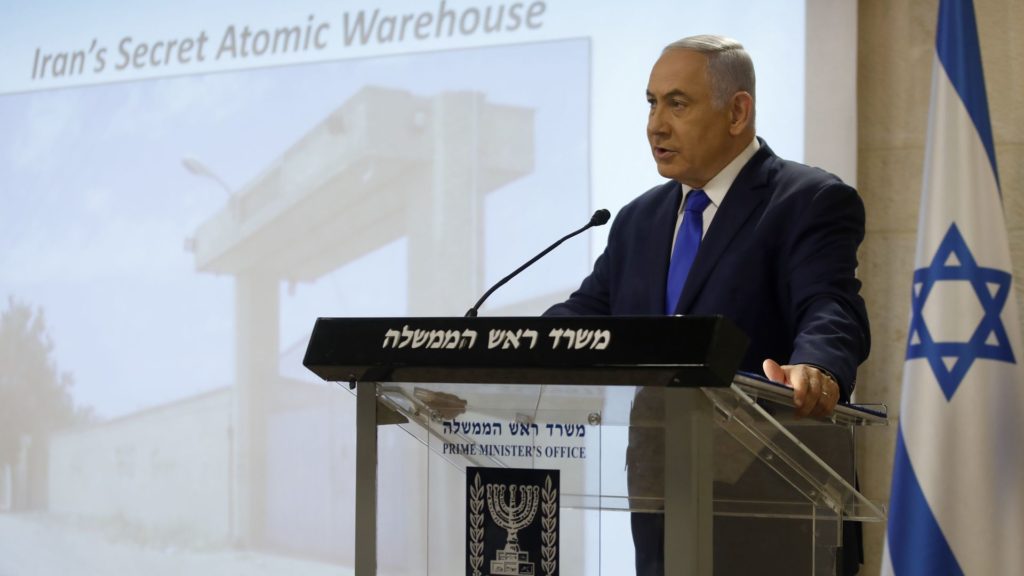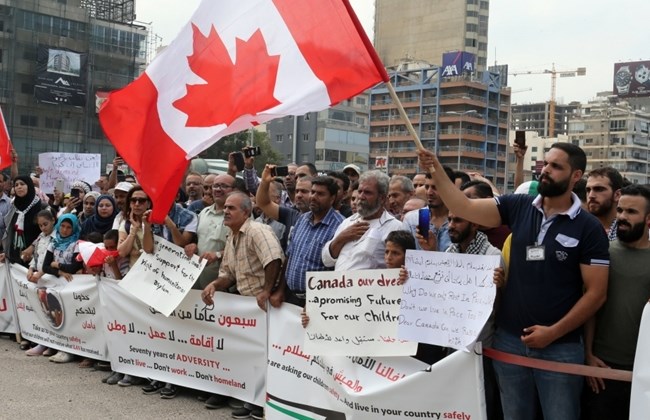Australia/Israel Review
Behind the News – October 2019
Oct 3, 2019 | AIJAC staff

Rockets and Terror
On Aug. 23, Palestinian terrorists hurled an explosive device at visitors to a natural spring tourism site outside the Dolev settlement in the northern West Bank, killing 17-year-old Rina Shnerb and injuring her father and brother.
On Sept. 6, five rockets were fired from Gaza towards Sderot in southern Israel. Between Sept. 8-9, three more rockets were fired but fell inside Gaza. On Sept. 10, several rockets were fired towards Ashkelon and Ashdod while Israeli PM Binyamin Netanyahu was speaking at a campaign rally in the area. The next day, another three rockets were fired. Israeli planes bombed Hamas targets in response. On Sept. 18, a rocket fired towards Israel fell short, injuring seven Palestinians in Gaza.
Violent “March of Return” riots continue along the Gaza security fence. On Sept. 7, three Palestinians were detained after successfully infiltrating into Israel, and two more were detained the following day.
In Israel’s north, anti-tank missiles fired by Hezbollah narrowly missed hitting an IDF vehicle on Sept. 1, leading to retaliatory shelling. No casualties were reported.
Another Iranian nuclear weapons site exposed
In a press conference on Sept. 9, Israeli Prime Minister Binyamin Netanyahu made public a previously unknown Iranian nuclear site in Abadeh, South of Isfahan, showing photos of the site.
Knowledge of the site came from information found in Iran’s secret nuclear archive, nabbed by Israeli Mossad from Teheran on January 2018, he said. According to Netanyahu, the site was used to conduct forbidden nuclear weapons development until a few months ago, when the Iranians realised its secrecy had been compromised and demolished it. According to experts, if Israel’s allegations about Abadeh are substantiated, this would be a “smoking gun” proving Teheran had continued its nuclear weapons program in direct violation of the 2015 JCPOA nuclear deal.
The same day, reports emerged that Iran had refused to respond to queries from the International Atomic Energy Agency (IAEA) about the origins of radioactive particles found in a warehouse at Turquzabad. Israeli sources had alleged the warehouse was used for storage of nuclear equipment and materials.
Iran reinstalling uranium enrichment centrifuges
The International Atomic Energy Agency (IAEA) confirmed on Sept. 7 that Iran has installed or started to install around 200 advanced uranium enrichment centrifuges of several types in its plant in Natanz and has initiated preparations to operate them. The re-introduction of these centrifuges constitutes a further breach of Teheran’s commitments in the JCPOA.
According to the report, Iran had installed 22 IR-4, one IR-5, 30 IR-6 and three IR-7 centrifuges. Under the JCPOA, Iran can only operate a limited number of IR-1 centrifuges. An IR-7 can reportedly enrich uranium at 10x the rate of an IR-1 centrifuge.
Iran supplying oil, building bases in Syria
An Iranian oil tanker, previously detained in Gibraltar, has reportedly unloaded its cargo in Syria in violation of EU sanctions.
The Iranian-flagged Adrian Darya 1 was previously detained in Gibraltar by British authorities, but was released on Aug. 15 after Iran promised in a written statement that the vessel would not provide oil to Syria.
US intelligence reported that the tanker nonetheless turned off its tracking devices on Sept. 2 and headed for the Syrian port of Tartus, where its cargo was offloaded offshore.
Separately, intelligence sources have reported that Iran is, for the first time, building a large new military base in Syria capable of hosting precision-guided missiles and housing thousands of fighters, with at least five fortified strongholds surrounded by defensive mounds.
The base is situated close to the Iraq-Syria border and is being developed by Iran’s elite Quds force.
In related news, more than CAD$28 million (A$31 million) worth of Iranian government assets have been seized in Canada and sold off to pay victims of Iranian-backed terrorism, pursuant to a court order.
Lebanese Palestinians protest for resettlement in Canada

Palestinians in Beirut call for their resettlement in Canada
Hundreds of Palestinians protested outside the Canadian Embassy in Beirut on Sept. 5 demanding the right to resettlement in Canada.
The sit-in was staged by the Palestinian Youth Organisation for Humanitarian Relief in Lebanon, whose spokesman Fathi Najjar handed letters to the Canadian Ambassador “explaining the suffering of Palestinians in Lebanon and the need for asylum in Canada.”
According to Najjar, the protests were prompted by the Lebanese Labour Ministry’s recent crackdown on undocumented foreign labour, which he accused of unfairly targeting Palestinians.
The protestors also condemned widespread corruption at the aid agency for Palestinian refugees, UNRWA, citing its failure to protect “their most basic rights” and accusing it of operating with “patronage and factionalism”.
US Middle East envoy Greenblatt quits
The US Special Envoy to the Middle East Jason Greenblatt has given notice to the Trump Administration and will leave the role after serving two and a half years.
His duties will now be filled by multiple people, including US President Donald Trump’s son-in-law Jared Kushner, US Ambassador to Israel David Friedman, US Special Representative on Iran Brian Hook and Deputy Assistant to the US President Avi Berkowitz.
Greenblatt’s departure comes before the US Administration releases its much-awaited ‘Deal of the Century’ plan for peace between the Israelis and Palestinians, which he had a large role in formulating. Its release was reportedly delayed until after the Israeli election.
Cash-strapped PA accepts some tax money
Facing a financial crisis, the Palestinian Authority (PA) agreed on Aug. 22 to accept approximately $3 billion in fuel taxes from Israel.
The PA had been refusing all Israeli tax revenue transfers after the Israeli Government began implementing a law passed in July 2018 that required it deduct from the tax transfers the amount that the PA doles out to Palestinians and their families who have carried out terror attacks.
Such salaries and stipends, which totalled $203 million last year, have come to be known as “pay for slay”.
Nauru, Honduras: Jerusalem is Israel’s capital
On Aug. 28, the republic of Nauru and the Central American nation of Honduras formally recognised Jerusalem as Israel’s capital.
Honduras followed this with the opening of a trade mission in Jerusalem on Sept. 1. Honduran President Juan Orlando Hernandez called this a “first step” towards moving his country’s embassy there from Tel Aviv.
The two countries join a growing number of countries that have recognised Jerusalem, in whole or in part, as the capital of Israel, including the US, Guatemala, Russia, and Australia, while leaders of the Czech Republic, Romania, Lithuania and Brazil have expressed an intention to move their embassies to Jerusalem.
Australian, world Jewry growing slowly
The global Jewish population hit 14.6 million in 2018 – an increase of less than one percent on 2017 estimates, according to a report by Hebrew University demographer Sergio DellaPergola.
Jewish population growth is slower the than general population globally, but Israeli Jewry has bucked the trend, soaring by 10.2% since 2012.
More than 80% of the world’s Jews live in Israel and the US, with Canada and France boasting the next largest populations. Australia has the world’s ninth-largest Jewish population with an estimated 113,400 Jewish citizens, up by only 1.3% since 2012.
Tags: International Jewry, Iran, Israel, Lebanon, Palestinians, Syria






